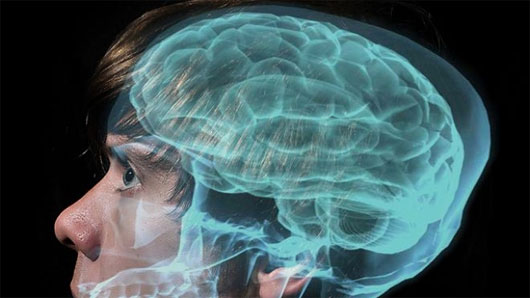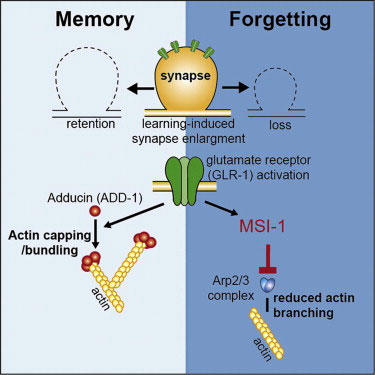The forgotten process is controlled in the brain by proteins
In the process of regulating human health, "forgetting" something is no less important than "remembering". If there is no "forget" concept, all the faces we meet on the street, the words read, the things we look at, . All are recorded in memory and quickly overflow throughout our brain.
However, we still do not understand the basic role of the nervous system behind the "forget" process . Recently, during the study of Ascaris, scientists have discovered that a protein called musashi has actively participated in the forgetting process.

The results of the study have been published in the recent issue of Cell magazine. Accordingly, the scientists discovered that the transgenic ascaris lost the musashi protein, making them more capable of remembering flavors than normal individuals. The flavors will be remembered 24 hours later while normal individuals cannot do this.
Further analysis showed that proteins play a role in hindering the production of stable molecules synapses . These are nerve conjugates that are involved in the formation and storage of memory. The study also showed that the protein called adducin is capable of stimulating the growth of synapses to store memory. The balance of the two opposing processes mentioned above will determine which memories will be kept. This is the first time scientists can know "remember-forget" as a process that can be controlled proactively.

The study concluded: "This imbalance in the mechanism leads to memory disorders." The study is only at animal detection and it is too early to draw conclusions on humans. However, the positive initial results will be promising to expand research on humans. In the future, if scientists can understand the "remember" and "forget" mechanisms of humans, we will be able to find ways to treat diseases like Alzheimer's or other diseases of memory. so far medicine has not found a specific treatment.
- Scientists have successfully developed brain-controlled robotic hands
- Manufacturing robot arms is controlled by the brain
- Discovered two proteins that cause brain cancer
- Detecting a cluster of proteins leads to 130 brain diseases
- Can the human brain be hacked?
- Samsung will soon test brain-controlled TVs
- Hearing aids controlled by world first thought
- Successful development of robots that can be controlled by thinking
- Biological arms controlled by brain signals
- It took 25 years for the brain to develop completely
- Wheelchairs controlled by thinking experiment successfully in monkeys
- Cars control thoughts
 Green tea cleans teeth better than mouthwash?
Green tea cleans teeth better than mouthwash? Death kiss: This is why you should not let anyone kiss your baby's lips
Death kiss: This is why you should not let anyone kiss your baby's lips What is salmonellosis?
What is salmonellosis? Caution should be exercised when using aloe vera through eating and drinking
Caution should be exercised when using aloe vera through eating and drinking